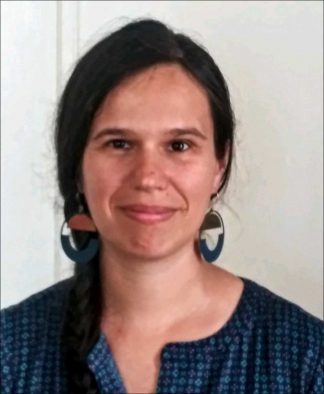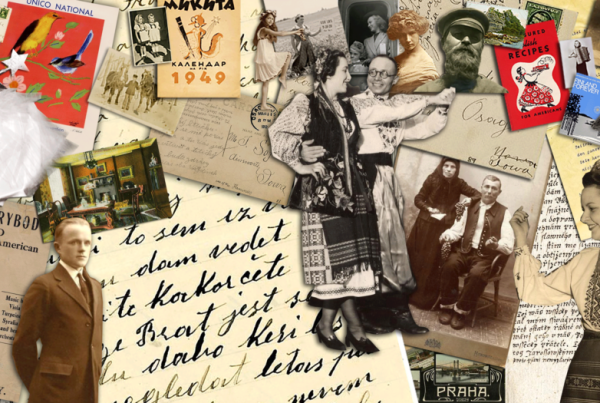By Allison Campbell-Jensen
World War I, the Great Depression, and immigration all contributed to a growing number of people who were unattached — unmarried and not linked to communities in significant ways. To study these single people, most of whom were men, Doris Brossard, a doctoral student of modern U.S. history, gender, and women’s history at Rutgers University, recently came to the University Libraries to access the Social Welfare History Archives and the Kautz Family YMCA Archives.
So, why is this research important? The U.S. government, Brossard says, actively promotes marriage; marriage provides privileges, even today. “So what happens to single people?” she asks. Are they discriminated against.
The records of social service organizations are a rich resource for her research, reflecting responses to migrating people, young women moving to cities for work, young working or military men, travelling groups of unemployed people, and others not attached to a formal group or family unit. This summer, Brossard was finally able to visit Archives and Special Collections to explore sources such as detailed surveys and reports, correspondence, and brochures related to programs and communities across the United States.
She found in the archives that organizations like the Travelers Aid Association and the YMCA worked with the government to find ways to constrain and/or organize single men and women. She looked at programs aimed at immigrants, who often left their families behind. She examined the lives of World War I soldiers, 90% of whom were not married, as revealed in documents and policies of the time.
‘Soldiers should abstain from sex’
The government wanted good relations between soldiers in training and local communities — and also wanted to prevent the spread of sexually transmitted infections, often called venereal diseases at the time.
“Their policy was that soldiers should abstain from sex, which wasn’t really working,” Brossard says. “First, they tried to suppress prostitution, and they also banned alcohol. They worked really hard to provide soldiers a lot of recreation and entertainment. They also had sex education classes. They encouraged the local community to welcome soldiers and to offer wholesome activities for soldiers through the YMCA.
“The YWCA had Hostess Houses, places in the camps where soldiers could visit with women, although they were always chaperoned.” In addition, the Travelers Aid Association helped and/or policed thousands of women who traveled to the training camps to visit soldiers.
Brossard also looked at Depression-era policies and programs, such as the Civilian Conservation Corps, which provided work for single men ages 18 to 25 (later 17 to 28), and others concerning unattached migrating men.
“You have to bring back this sense of control on this moving population. Transients were not seen as economically viable — they were perceived as a burden for communities, because they would sometimes need aid from communities,” she says.
Ironically, many of the welfare reformers of the time were single women — but being from the upper middle class, they were seen as economically stable.
In-person research at the Archives and Special Collections at Elmer L. Andersen Library was an important step for Brossard, as she continues her exploration of archives. Brossard is an Elmer L. Andersen Research Scholar, benefitting from a program that provides support, such as travel funding, to scholarly researchers not affiliated with the University of Minnesota to use the archives and special collections at the University Libraries.




